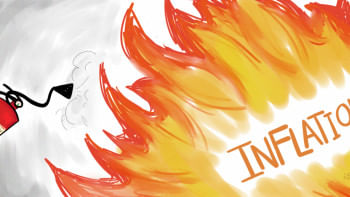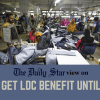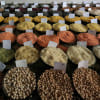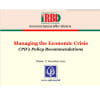The new tariff policy may help increase competitiveness

Bangladesh's new tariff policy features some key policy changes in view of the country's graduation from the Least Developed Country (LDC) category in 2026. The policy may be considered a step towards Bangladesh's attempt to diversify exports, attract foreign investment, sign free trade agreements, and ultimately enhance economic progress. This policy will also help the country align itself with the tariff regime of the World Trade Organization (WTO).
The key objective of the WTO is to increase trade among member countries by eliminating or reducing tariffs. Members provide information on their tariff commitments for goods in their schedule of concessions on goods. The schedules represent commitments to not apply tariffs above the listed rates (called bound rates). Once a country commits to a bound rate with the WTO, it is difficult to increase the rate.
WTO member countries work towards improving market access through work programmes and negotiations. The Doha Development Round of the WTO in 2001 launched such negotiations, with trade ministers of member countries agreeing to initiate tariff reduction on all non-agricultural products. The aim is to "reduce, or as appropriate eliminate tariffs, including the reduction or elimination of tariff peaks, high tariffs, and tariff escalation, as well as non-tariff barriers, in particular on products of export interest to developing countries."
However, LDCs are exempt from making such tariff commitments as reciprocity, given their economic status and potentially a higher level of tariff protection. As an LDC, Bangladesh has imposed tariffs unilaterally, but once it graduates from the LDC category, the country will face increased competition as it will have to make tariff reduction commitments to trade with its partners.
Though Bangladesh's economy has increasingly integrated into the global economy over the past five decades, trade openness is still low. Our export basket is narrow, with heavy reliance on readymade garments exports. Here, tariff support for import substitution industries has played a role in low diversification.
At present, local companies are protected by high import tariffs. Various types of tariffs are imposed on imports such as customs duty, regulatory duty, supplementary duty, value added tax, advanced tax, and advanced income tax. The average tariff protection rate was around 30 percent in FY 2022-23. The reasons behind such a high tariff are: 1) to generate revenue through higher import duty since tax as a percentage of GDP is low at only 8.5 percent in FY 2021-22; and 2) to protect local industries from international competition. The government earns a large amount of revenue from import duties on raw materials, intermediate goods, and consumer goods. But following tariff rationalisation, the government will have to forgo this income and reduce its dependency on import duties. In FY 2021-22, import duties constituted 10.3 percent of the government's total revenue. This is projected to be 10.5 percent in FY 2023-24. Hence, the new tariff policy means that efforts towards domestic revenue collection should be enhanced.
Of course, lower import tariffs may result in an increase in imports, and some revenue can still be collected from customs duty on some goods. But this could be in conflict with the government's objective of developing import-substitution industries, and businesses here may not be able to compete with global exporters and suppliers. Therefore, lower import costs for capital machinery and intermediate goods will help local industries reduce their costs of production and keep their prices competitive. The loss of tariff advantage can be compensated with lower import costs, so that tariff rationalisation can also help local entrepreneurs to export at competitive prices.
With lower tariffs, foreign investors may also be more inclined to run operations in Bangladesh, which would create employment and enhance economic activities. However, ensuring other conditions such as infrastructure, skilled human resources, and efficient administration would be crucial to make this happen.
Protection of local industries would be important at the initial phase for a certain period. However, there has been a tendency to provide tax exemption and other incentives to some sectors for an indefinite period. This creates market distortions as some enjoy such incentives while others do not. There should also be a clear plan and timeline on phasing out various exemptions and support.
The Centre for Policy Dialogue (CPD) has been urging policymakers to estimate how much revenue is lost due to such exemptions. Notably, the finance minister, for the first time ever, provided some relevant numbers in the FY 2023-24 budget, though there is no segregated estimate of revenue forgone due to such incentives and exemptions at the import level. In the budget, it is mentioned that the total amount of direct tax expenditure applicable for FY 2020-21 was Tk 1,25,813 crore, of which Tk 85,314 crore was at the corporate level. These are equivalent to 3.56 percent and 2.38 percent of Bangladesh's GDP, respectively. Though there is no number for import tax rebates at the industry level, it may have been counted with the corporate level exemptions. It was projected by the government that direct tax expenditure for FY 2022-23 would be Tk 1,78,241 crore. The total share of this amount in total tax revenue and total direct tax revenue is high. Clearly, the government is losing a substantial amount of revenue due to such exemptions including tariff rebates, as direct tax expenditure includes rebates, discounts, exemptions, reduced rates of taxation, and exclusion of income in computing total taxable income.
The new tariff policy will also play an important role in export diversification. Though Bangladesh's economy has increasingly integrated into the global economy over the past five decades, trade openness is still low. Our export basket is narrow, with heavy reliance on readymade garments exports. Here, tariff support for import substitution industries has played a role in low diversification.
Given the slow progress of consensus among members in the multilateral trading system, several countries are signing free trade agreements (FTA) among themselves. Bangladesh should also prepare to sign FTAs with its trading partners since, after the upcoming LDC graduation, it will lose preferential market access.
Bangladesh is interested in joining the Regional Comprehensive Economic Partnership (RCEP), which is the world's largest FTA comprising about 30 percent of global GDP. Joining such a bloc will help Bangladesh face its post-graduation challenges and boost exports, as RCEP members enjoy preferential market access amongst themselves. Bangladesh does already import from several RCEP member countries including China, Japan, Thailand, South Korea, Indonesia, Malaysia, and Australia. Hence, joining the RCEP will mean that a certain amount of revenue from these countries will be lost. But this loss can be made up for through higher trade via preferential trade arrangements with RCEP member countries.
However, this would require Bangladesh to be prepared, with appropriate policies being put in place. To be part of such agreements, the country needs to make many policy changes. Full reciprocity of tariff measures among trading countries will be the basis of these agreements. As part of this, enabling regulatory and institutional mechanisms, and removing supply-side bottlenecks such as infrastructure, quality of products, and capacity of human resources, should be addressed. The new tariff policy is only one factor, and has to be followed through with adequate preparation immediately.
Dr Fahmida Khatun is executive director at the Centre for Policy Dialogue (CPD) and non-resident senior fellow of the Atlantic Council. Views expressed in this article are the author's own.

 For all latest news, follow The Daily Star's Google News channel.
For all latest news, follow The Daily Star's Google News channel. 










Comments